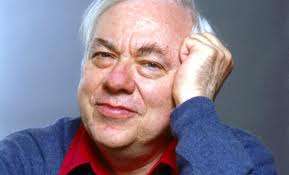|
Back
Reasons For Music New York
Isaac Stern Auditorium, Carnegie Hall
04/25/2012 -
Robert Schumann: Kinderszenen, Op. 15 – Kreisleriana, Opus 16
Frederic Chopin: Nocturne in E-flat Major, Op. 55, No. 2 – Scherzo No. 3 in C-sharp Minor, Op. 39 – Waltz in A-flat Major, Op. 64, No. 3 – Waltz in C-sharp Minor Op. 64, No. 2 – Waltz in F Major, Opus 34, No 3 – Ballade No. 3 in A-flat Major, Op. 47
Richard Goode (Piano)

R. Goode (© Sasha Gusov)
The problem with being a “pianist’s pianist”, is in the perception. The phrase should not mean perfection (for Richard Goode last night made a few mistakes, blurred more than a few passages). It certainly does not mean that the artist should preclude undue emotion (for Mr. Goode certainly let his feelings take hold of his playing in the first half).
The regrettably-named “pianist’s pianist” is essentially that rare artist who attempts to understand the composer’s meaning, who puts aside personal proclivity to reach for integrity and who–most important–has the chops, as well as the fingers, to communicate the sounds in his mind to his audience.
In that sense, Richard Goode fits the bill. He is best known for mid-19th Century music, but doesn’t neglect later or earlier music. (In fact his encore from Janácek’s On An Overgrown Path was masterfully played.) But why should one listen to other pianists do Beethoven, when Mr. Goode does it so well?
Obviously, because other pianists can bring out ideas which might be interesting, even exceptional. But when Richard Goode plays Beethoven, one has the feeling that he plays it as a unity. When Richard Goode performs, it’s difficult to say, “Oh, this movement was terrific”...or that tempo was a bit laggard...”
One says, “Now that was Beethoven.”
Richard Goode didn’t play Beethoven last night except an encore. Intead he devoted his first half to a pair of Schumann works. The first, Scenes from Childhood, had the simplicity and imagination of a child. The second, Kreisleriana, based on a mad character from a tale by E.T.A. Hoffman, could be translated a decade ago to “manic-depressive” music, and today into “bi-polar” music.
Under Mr. Goode’s hands, it was pure music.
The Childhood Scenes were played for sheer delight by the artist. His lines were crystal clear in the “Blind Man’s Buff”, his “Dreaming” was never sleepy, the final “poet speaking” was like the “amen” to a beautiful sermon. Mr. Goode was not afraid to accelerate or retard, but he never underlined–never had to underline–that which seemed inevitable.
The Kreisleriana showed flashy technique without a hint of flash. Mr. Goode’s confidence is such that his fingers are unobtrusive tools for his concepts. The start was a whirlwind, , the seventh character piece was equally stormy.
But I must admit that with the first notes of the second movement, “Inward, not too quickly”, I forgot about the troubles of the world, of wars, starvation, pollution mad politics... Afterwards I felt guilt, but I felt, with Mr. Goode’s playing, that our universe was satisfactory, content.
So fundamentally right was the Schumann that the second half Chopin buffet (a few waltzes, one nocturne, ballad and scherzo with a mazurka encore) were simply enrtainments. They were played with grace and devotion, the waltzes were not for dancing (more for Bellini-type singing), the Third Ballade was held back until the ending, the nocturne more twilight than nocturnal.
Here, he was the “pianist’s pianist” but I happen to like my Chopin more idiosyncratic, with more surprises (even a jolt or two), with less control.
That, though, is not the Richard Goode manner. His Chopin, like his Schumann, materialized his own concept of the composer. And while the audience didn’t give the usual standing ovation, one felt that their understanding, like the artist’s was not from the fingers but from the heart.
Harry Rolnick
|